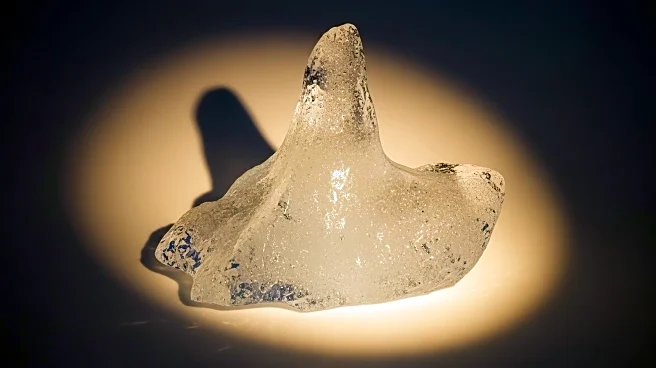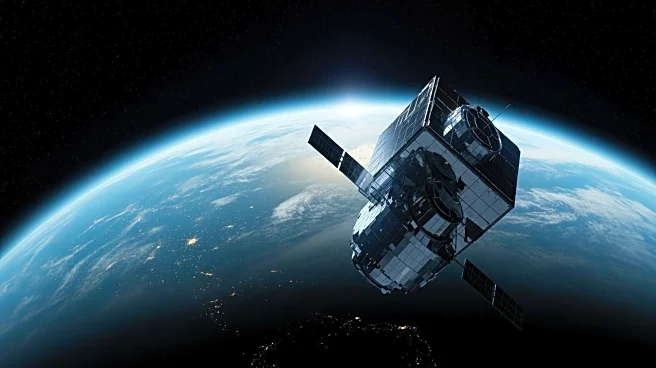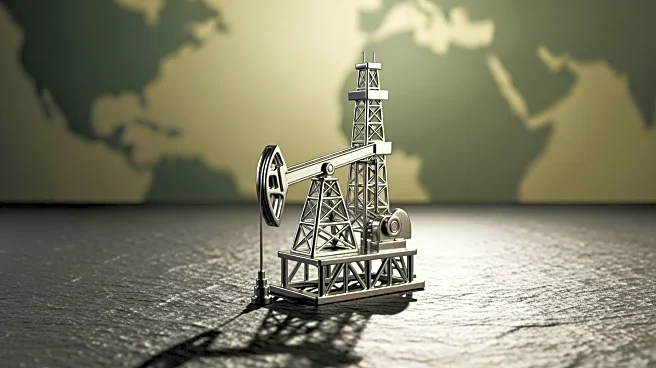What's Happening?
Switzerland's glaciers have experienced a significant melting this year, with a 3% reduction in total volume, marking the fourth-largest annual drop on record. This decline is attributed to global warming, as reported by Swiss glaciologists. Over the past decade, the ice mass in Switzerland has decreased by 25%, with more than 1,000 small glaciers disappearing. The Swiss glacier monitoring group GLAMOS and the Swiss Academy of Sciences highlighted that a winter with little snow followed by record-breaking heatwaves in June accelerated the melting process. The retreat of glaciers is impacting Switzerland's landscape, causing mountains to shift and ground instability.
Why It's Important?
The melting of Swiss glaciers has broader implications for various sectors, including hydropower, tourism, farming, and water resources across Europe. As glaciers retreat, they affect water availability and landscape stability, which can lead to economic and environmental challenges. The accelerated melting is a clear indicator of anthropogenic global warming, emphasizing the urgent need for climate action. The loss of glaciers also impacts biodiversity and natural habitats, further stressing the importance of addressing climate change.
What's Next?
Swiss authorities are on heightened alert for changes in the landscape due to glacier retreat. The potential for rock and ice avalanches increases as glaciers continue to melt, posing risks to nearby communities. Continued monitoring and research are essential to understand the long-term impacts and develop strategies to mitigate risks. International cooperation on climate policies may be necessary to address the root causes of global warming and reduce future glacier loss.
Beyond the Headlines
The retreat of glaciers in Switzerland highlights the ethical and environmental dimensions of climate change. It raises questions about human responsibility and the need for sustainable practices to protect natural resources. The cultural significance of glaciers in Switzerland, as part of its national identity and heritage, underscores the importance of preserving these natural wonders for future generations.








